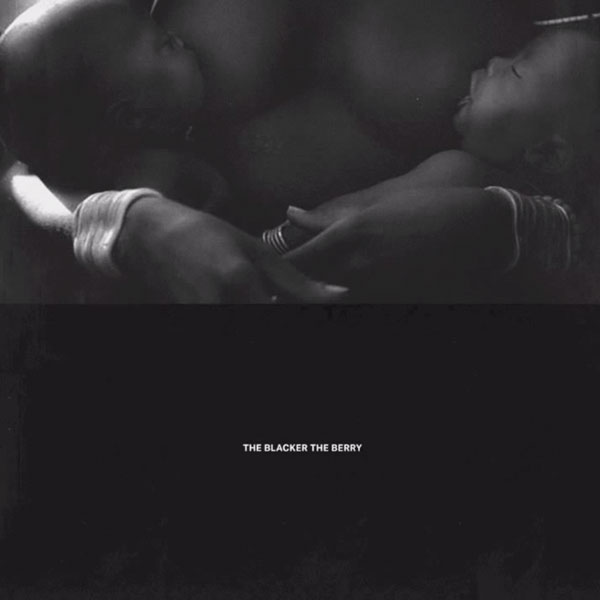Imagine if you were a guest speaker on “The O’ Reilly Factor” and you argued that police brutality is an unacceptable problem in Black communities that the government has to take steps for reform. Now imagine that Bill responds to you by saying that Black people should ignore police brutality and reform themselves first. Then he goes on to add that the police don’t respect Blacks because they, Black folk, don’t respect themselves. You might be mad, or disregard it as another “O’ Reilly, Oh really” insensitive, ignorant diatribe. Well, with his recent comments in Billboard Magazine regarding the Michael Brown shooting and punctuated with an exclamation point in his visceral “Blacker The Berry” track, Kendrick Lamar has taken that very same ignorant stance.
“I wish someone would look in our neighborhood knowing that it’s already a situation, mentally, where it’s f—ed up. What happened to Michael Brown should’ve never happened. Never. But when we don’t have respect for ourselves, how do we expect them to respect us? It starts from within. Don’t start with a rally, don’t start from looting — it starts from within.”
-Kendrick Lamar’s Billboard quote
“No matter how much I say I like to Preach with the Panthers, Or tell Georgia State Marcus Garvey got all the answers/ or try to celebrate February like it’s my bday, or eat watermelon and chicken on weekdays/ or jump high enough to get Michael Jordan endorsements, or watch BET because urban support is important/ so why did I weep when Trayvon Martin was in the street, when gang banging made me kill a nigga blacker than me? Hypocrite!”
-Excerpt from Kendrick Lamar’s “The Blacker the Berry”
Kendrick has joined the ranks of Bill Cosby, Michael Nutter, and Charles Barkley, of invalidating the criticism of social and racial injustice and blaming it on Black criminal pathology. Now Good Kid, MAAD City may have deserved all the praise and accolades it received, updating the hood coming of age narrative Nas cemented with Illmatic 18 years earlier with a fresh perspective. But just as much as Nas’ worldview and social commentary has evolved throughout his career, Kendrick seems stuck in cement, viewing social issues with the same narrow minded gang-banging Compton lens, a gang-banging Compton which, itself, has evolved dramatically from the madness of the 80s and early nineties.
Crime is directly correlated with poverty, and African-Americans are significantly more impoverished than White Americans. This is also the case with Latino-Americans and Native Americans. It is not coincidence that these groups of people that were historically disenfranchised by the US government, are still reeling economically from it. The official reason for a Police force is to enforce the laws of the state. In real world policy, police are necessary to keep those that have, safe from those that have not. Police brutality perpetuated against generations black, brown and red has been systematically in place for almost a century, because these groups are part of the have not. At some point economic criminality has to be discussed with as much fervor as black, brown and red criminality.
In a 1958, way before any Crip or Blood set, Time Magazine reported,
“Unlike the Caucasian immigrant of an earlier day, a Negro can scarcely ever hope, even in the North, that the white society will really accept him on his human merits. Negroes are more prone than whites to break the laws, rules and customs of society because they are excluded from full membership in it. In gross and subtle ways, from unwritten bans on employing Negroes to the faintly patronizing tone that even liberal-hearted whites take toward them, Negroes are made to feel alien and inferior. This pervasive discrimination holds down capable Negroes at the top of the social ladder, dims their voices among their own people, builds up tensions and resentments inside the Negro society, and keeps great masses of Negroes segregated in ghettos where the standards of personal morality, discipline and responsibility are lower than those in the white world outside.”
As we see, this is not a brand new discussion. Kendrick is now the de facto lyrically conscious artist. Fair or unfair, everyone is listening when he introduces social commentary in his lyrics. It is time for him to broaden his perspective past a good kid in a mad city, to a knowledgeable, informed man, understanding the impact his lyrics have on a entire generation. He cannot continue to dismiss the pressing cause for reform of police brutality with such an ignorant and malformed opinion. As said by the de facto socially conscious rapper from one generation before him:
“Some say the blacker the berry, the sweeter the juice, I say the darker the flesh than the deeper the roots.” -Tupac

